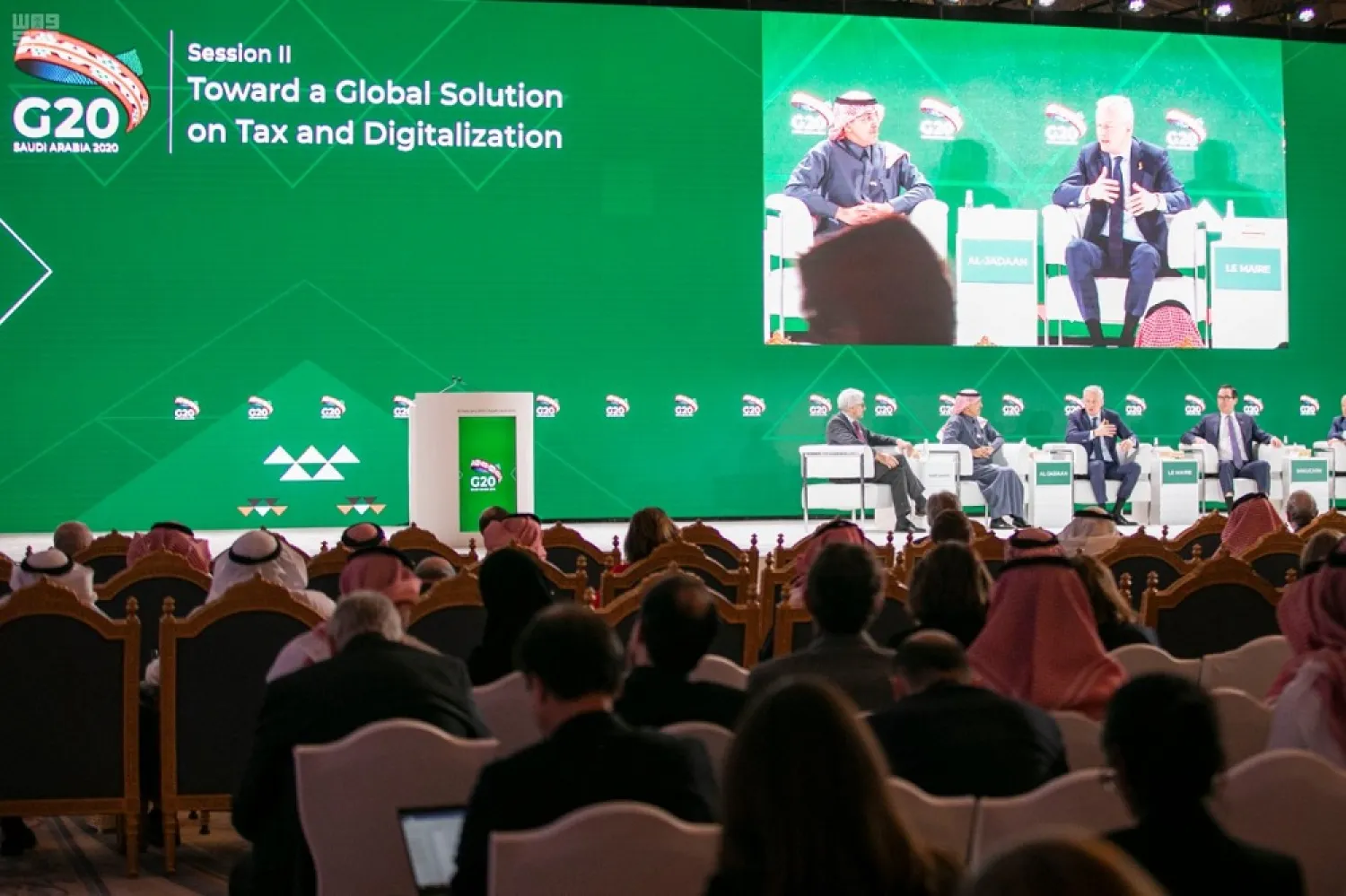G20 organizers in Saudi Arabia hosted on Saturday a ministerial-level symposium on international taxation, focused on the challenges arising from the digitalization of the global economy.
"There is a consensus among the G20 members on the necessity of getting this new international taxation system for the sake of fairness and efficiency," said French Finance Minister Bruno Le Maire.
He urged the gathered leaders to reach a compromise solution by the end of the year over the digital tax on giants such as Apple, Facebook and Google, which has emerged as a key bone of contention between the US and France.
Presidents Emmanuel Macron and Donald Trump have agreed to extend negotiations on the proposed French tax on digital giants to the end of the year, postponing Washington's threat of sanctions against Paris.
France has said it would drop its tax if an international agreement is reached under the auspices of the Organization for Economic Cooperation and Development (OECD).
The OECD says the tax changes under discussion could increase global corporate income tax revenues by some $100 billion (92 billion euros) annually.
"A coordinated answer is not the better way forward, but... the only way forward," OECD chief Angel Gurria told the Riyadh gathering.
Last month, Britain said its own planned digital tax on hugely profitable technology giants will proceed from April despite US threats of retaliatory tariffs.
"You cannot have in a global economy different national tax systems that conflict with each other," US Treasury Secretary Steven Mnuchin said in Riyadh.
Even as France has put its plans on hold, other European nations like Italy and Austria have introduced their own digital levy.
Saudi Arabia's G20 presidency will see it host world leaders for a summit in Riyadh from November 21 to 22.
It will hold more than 100 events and conferences in the run-up to the summit, including ministerial meetings, organizers say.









